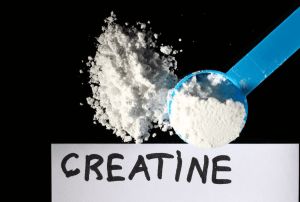As the holidays are approaching, unfortunately, so is weight gain. It’s no secret that during Christmas holiday people tend to gain a few pounds… or more. Some of those pounds may come from more excessive eating of more fatty and sugary foods, like cinnamon rolls! Who doesn’t love cinnamon rolls…?!
A Popularized Study
Cinnamon itself has gained some fame lately thanks to a study that claimed that the use of cinnamon may contribute to weight loss because of its active substance called cinnamaldehyde, which is believed to increase fat cell metabolism (1). An increased metabolism fat cells would, according to this study, lead to weight loss. The study added cinnamaldehyde to human stem cells in a lab, and observed an increase in cell metabolism. There is no effective way to extract from cinnamon is yet.(1)
Cinnamon and Blood Sugar
However, the results of the study above have been questioned (2) since increased cell metabolism isn’t enough as a mechanism for weight loss. Rather, cinnamon might be because of improvements in blood sugar profiles (3). Indeed, some improvements where seen in mice (4), but when human subjects are studied, cinnamon shows little to no improvement in blood sugar profiles in individuals with type 2 diabetes (2-3).
Hormonal Effects
Cinnamon may decrease ghrelin secretion partially, a hormone that stimulates food intake and thus bodyweight gain, although this is only tested in mice. (5)
Cinnamon Toxicity
Cinnamon is toxic to the liver and kidneys in too high doses. Depending on which type of cinnamon you eat, a 50 kg (110 lb) person should limit their intake of Cinnamomum cassia to 0.4 g – 50 g per day (7) and Cinnamomum verum to just over 50 g per day. (6) According to the USDA, one teaspoon of cinnamon weighs 2.6 grams.
Take Home
In summary, there seems to be no shortcut to weight loss, not even during the Holidays. There’s no need to overdose on cinnamon if you’re looking to drop a few pounds. Stick with the classic weight loss methods and use cinnamon for its flavor instead!
Post provided by @maria_ekblom, a member of #teamEBT. Licensed physiotherapist and personal trainer.
Sources:
1. Jiang J et al. Cinnamaldehyde induces fat cell-autonomous thermogenesis and metabolic reprogramming. Metabolism. 2017;77:58-64.
2. Whitfield P. The effect of a cinnamon-, chromium- and magnesium-formulated honey on glycaemic control, weight loss and lipid parameters in type 2 diabetes: an open-label
cross-over randomised controlled trial. European Journal of Nutrition. 2015;55(3):1123-1131.
3. Mollazadeh H. Cinnamon effects on metabolic syndrome: a review based on its mechanisms. Iranian journal of basic medical sciences. 2016;19(12):1258-1270.
4. Solomon T. Changes in glucose tolerance and insulin sensitivity following 2 weeks of daily cinnamon ingestion in healthy humans. European Journal of Applied Physiology. 2009;105(6):969-976.
5. Camacho S et al. Anti-Obesity and Anti-Hyperglycemic Effects of Cinnamaldehyde via altered Ghrelin Secretion and Functional impact on Food Intake and Gastric Emptying. Scientific Reports. 2015;5(1).
6. Coumarin in flavourings and other food ingredients with flavouring properties – Scientific Opinion of the Panel on Food Additives, Flavourings, Processing Aids and Materials in Contact with Food (AFC). EFSA Journal. 6 (10): 793. 2008.
7. Ballin, Nicolai Z.; Sørensen, Ann T. (2014). “Coumarin content in cinnamon containing food products on the Danish market” (PDF). Food Control. 38: 198.








